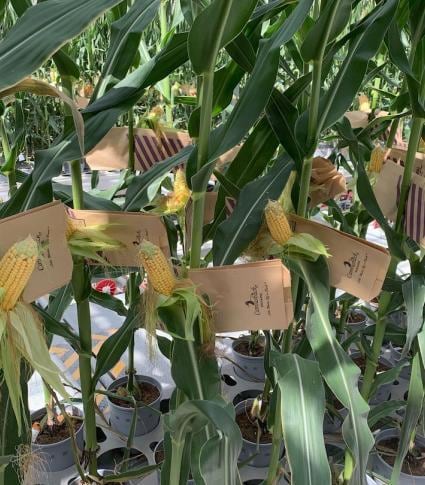Driving the Future of Plant Breeding

Advanced digital technologies improve our chances to discover new solutions for farmers. At Bayer, we know that no two fields are the same. Climate, pests, and other growing conditions vary region to region and farm to farm. We also know this means the only way to advance agriculture is to provide more and better choices for farmers – and to do it faster. So, we built a more informed, more efficient seed pipeline using advanced phenomics, genomics, data science, and artificial intelligence tools. As a result, we’ve brought new varieties to market more quickly, empowering farmers to adjust to changing pests, weeds and diseases, and variable climatic conditions while decreasing the environmental impact in both the breeding R&D process and on the farm.
From Selecting the Best to Designing the Best: Precision Breeding
In one of the most transformational shifts in breeding history, our Precision Breeding platform will drive tailored solutions that reflect the specific needs of our customers’ farms, crops, soils and agronomic practices. Precision Breeding uses artificial intelligence (AI) technology to guide genetic changes and to access more data so scientists can quickly and accurately identify the precise changes needed to remove negative plant traits or emphasize positive ones. Ultimately, precision breeding results in the delivery of seed varieties tailored to growers’ unique field conditions years ahead of schedule.
In 2020, we opened our first fully automated greenhouse in Marana, Arizona. The approximately 100 million dollar (US) facility serves as a global product design center for corn, the only crop grown there. Additionally, the Marana facility capitalizes on innovation advancements in proprietary seed chipping, advanced marker technology, automation, and data science. The 300,000 square feet of growing space has been designed for the sustainable use of inputs throughout the research process. Water used for crops will be recycled, which helps preserve precious desert water supplies, 100 percent of harvested materials will be used for compost and beneficial insects will be used to reduce pesticide applications.
Automation also plays a big part at our Seed Centers. Today, we have two fully automated Seed Centers (Urbandale, IA and Whitestown, IN) where we process and package seeds for our global field operations. Using data analytics to guide all activities, automation enables testing at scale and optimization of selecting and managing testing plot locations. It also maximizes efficiency of differentiated experiment design within a field and evaluation of potential products.


The Marana greenhouse facility in Marana, Arizona capitalizes on innovation advancements in proprietary seed chipping, advanced marker technology, automation and data science.
Plant breeding today involves some of the world’s most sophisticated technologies and practices to develop the plants we need to nourish our growing population and preserve natural resources. An exciting breeding approach that has captured the attention of the research community is genome editing, which enables scientists to make more targeted improvements within a plant’s DNA to produce a better crop. These “edits” fine-tune a plant’s own genetic material and can result in better harvests more quickly and predictably than other plant breeding tools and practices.























